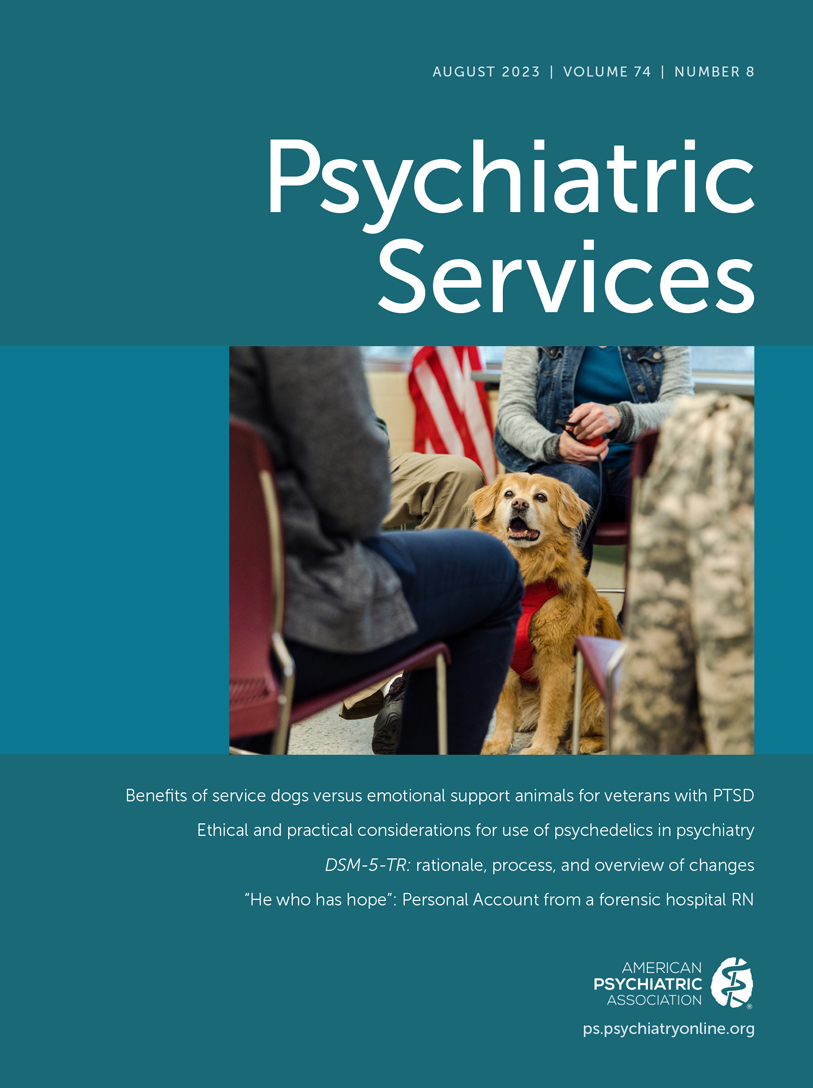Establishing an Ethics for Psychedelic Psychiatry
Over the past few decades, there has been a renewed interest within the scientific community in psychedelic drugs as potential treatments for psychiatric disorders. The lay media also has stoked public enthusiasm for psilocybin and other psychedelics—as both a psychiatric panacea and a method of self-improvement—while often failing to acknowledge the risks posed by the use of these drugs. As research on the therapeutic benefits of psilocybin and other psychedelics grows and U.S. Food and Drug Administration approval becomes a genuine possibility, psychiatrists must remain mindful of the ethical and clinical challenges associated with psychedelics’ use in psychiatry. Barber and Dike’s (1) article in this issue, written in cooperation with the Ethics Committee of the American Psychiatric Association, provides a comprehensive analysis of these issues and underscores the need for a balanced, evidence-based approach. The authors highlight the relevance to therapy of psychedelics’ unique psychological effects and the ethical responsibilities inherent in the research and application of such compounds. In addition, the authors identify considerations related to informed consent, patient suggestibility, psychological states arising from psychedelic intoxication, nonclinical psychedelic use, and the adoption of psychedelics in diverse communities.
Informed consent, a cornerstone of ethical clinical practice, is particularly challenging in the context of psychedelic-assisted psychotherapy. The authors aptly point out that the potent effects of psychedelics necessitate an enhanced consent process to ensure understanding of risks and potential treatment outcomes. Patients should understand that acute and long-term emotional, cognitive, and perceptual changes may occur with psychedelic use. Although psychedelic journeys are positively transformative for many people, these journeys are not beneficial for everyone. Barber and Dike also note that psychedelics not only may be used to treat some mental disorders but also may lead to changes in personality and beliefs. Eliciting such changes could be outside the scope of psychiatric treatment; therefore, practitioners need to ensure that their patients’ understanding of the goals of treatment align with their own.
Barber and Dike’s concerns regarding informed consent are contrasted with lax public policy in jurisdictions such as Oregon, which recently legalized psilocybin. Despite highlighting the prevalence of mental illness and addiction among adults in Oregon as the rationale for legalizing psilocybin, the state’s legislature adopted a system in which almost anyone can obtain and self-dose psilocybin recreationally—under the observation of a facilitator who is not required to have a mental health or medical license. Facilitators are required to review a 30-item informed consent document that states, “I understand that psilocybin services do not require medical diagnosis or referral and that psilocybin services are not a medical or clinical treatment.” Oregon’s informed consent form, in addition to directly contradicting the stated aim of the legislation (i.e., providing a novel treatment modality for people with mental and substance use disorders), downplays the unpredictable effects of psilocybin and fails to account for the risk that psilocybin use poses to vulnerable individuals.
The widespread promotion of psychedelics often overlooks the ethical and practical considerations of their use in psychiatry. Amid the media hype, the unchecked enthusiasm, and the psychedelic entrepreneurial ventures promising significant returns on investment, Barber and Dike caution that ill-considered psychedelic use could compromise psychiatrists’ professional integrity and endanger patients’ safety and well-being. At a societal level, eager legalization of psychedelic administration without definitive data from phase 3 clinical trials may result in risky and misinformed public policy.
Barber and Dike provide a thoughtful review of the ethical and practical considerations relevant to the research and potential application of psychedelics in psychiatry, emphasizing the need for an approach that values evidence and maintains an awareness of psychedelics’ unique risks and challenges. Although the field of psychiatry may welcome the addition of psychedelics to the arsenal of psychotherapies, psychiatrists must not lose sight of the ethical issues related to their use. Above all, psychiatrists must ensure the safety and well-being of the patients they aim to help. With a balanced perspective, the field can better assess psychedelics’ place in the future of psychiatry.
1. : Ethical and practical considerations for the use of psychedelics in psychiatry. Psychiatr Serv 2023; 74:838–846Abstract, Google Scholar



